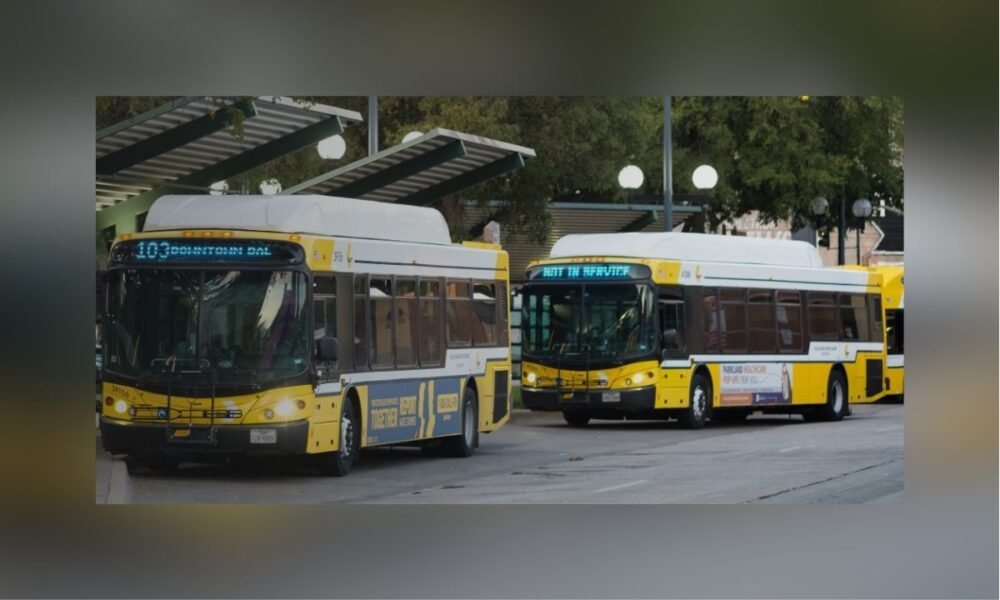Dallas Area Rapid Transit paid out more than $2.4 million in executive bonuses between 2020 and 2024 — even as the agency prepared for massive service cuts in September, according to internal documents obtained exclusively by The Dallas Express.
During that period, DART increased its number of executives by 57.5% and nearly doubled annual executive salaries.
The Dallas Express previously reported the agency spent more than $747,000 on executive bonuses from 2023 to 2024. In September, DART implemented the largest service cuts in its 40-year history, citing a budget shortfall of $42–43 million.
The Dallas Express requested comment from DART but did not receive a response before publication.
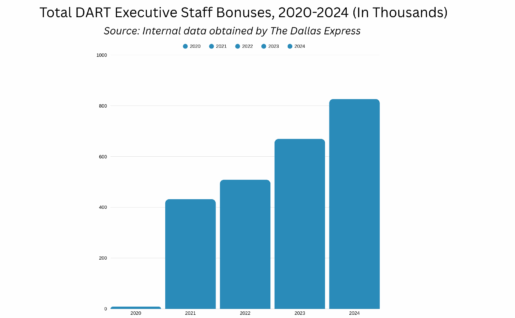
Annual bonuses for DART executives rose from $8,970 in 2020 to $826,123 in 2024, according to internal documents obtained by The Dallas Express.
The total annual bonuses for DART executives grew from $8,970 in 2020 – during COVID, when 14 executives left under a “Voluntary Incentive Retirement Program” — to $826,123 in 2024, according to the documents. The number of executives grew from 47 in 2020 to 74 in 2024.
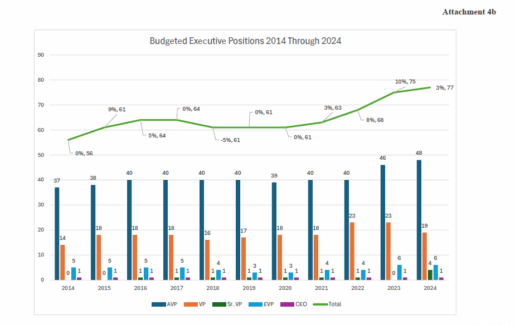
DART increased its executive staff by nearly 58% between 2020 and 2024, records show.
The total annual base salary for DART executives grew from $8.1 million in 2020 to $14.6 million in 2024, the records show. During this period, total compensation — including benefits, allowances, and bonuses — more than doubled from $9.6 million to $20.5 million.
Overall, DART has increased or maintained its number of budgeted executives every year since 2014, except in 2018, according to the records.
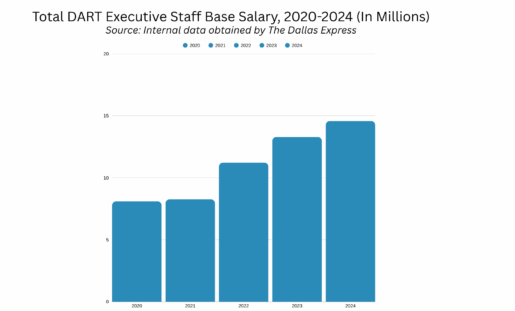
Total executive base salaries at DART nearly doubled from $8.1 million in 2020 to $14.6 million in 2024, while total compensation more than doubled to $20.5 million.
When DART CEO Nadine Lee, former chief of staff for Los Angeles Metro, joined the agency in 2021, she started with a base salary of $320,000 – the agency’s highest salary at the time, according to the documents. Lee maintained that salary through 2023, then got a raise to $400,000 in 2024. This roughly tracks with inflation.
During that time, she also received $60,000 in relocation compensation, $95,520 in bonuses, and more than $325,800 in taxes, benefits, and retirement.
The Bigger Picture
This discovery comes after The Dallas Express found DART spent more than $747,000 on executive bonuses from 2023 to 2024. The initial findings resulted from a public information request for bonuses to publicly listed executives in that time, to which DART replied with bonuses for 25 individuals.
But the complete number from 2023 to 2024 was much higher — nearly $1.5 million, the new documents show. There were 71 filled executive positions in 2023, and 74 in 2024.
When The Dallas Express initially broke the news, Republican state Rep. Jeff Leach posted on X about the “outrageous” spending, declaring that it is “time to get serious” about reforms.
Dallas City Councilwoman Cara Mendelsohn replied, asking Leach to consider a bill banning tax dollars from funding transit bonuses. Republican state Rep. Mitch Little also replied, saying he would support the bill.
“The public is owed an explanation about the huge growth in the number of executive staff and annual bonuses, especially amid reduced ridership and fare increases,” Mendelsohn told The Dallas Express.
The Dallas Express reached out to the offices of Leach and Little, but did not hear back in time for publication.
Long-Standing Concerns
Mayors of participating DART cities have become increasingly critical of DART’s funding and governance structure, and some cities may reconsider their membership in 2026.
For example, Plano gave $109.6 million in sales taxes to DART but received only $44.6 million in services – a $65 million annual deficit, according to a 2023 study obtained by The Dallas Express. Meanwhile, Dallas contributed just $407.8 million to DART, but received $690.5 million in services in return.
Dallas maintains a vast majority on the DART board, while cities like Plano and Farmers Branch share a single representative, an imbalance that mayors said makes it difficult to represent their constituents.
Another issue plaguing DART is the increasing crime rate across the system. Group A Offenses – including arson, assault, robbery, and drugs – doubled from 3.4 per 100,000 riders in January to 6.81 in June. These crimes have increased by nearly 44% since last year.
Amid frustrations with governance and service, the DART board of directors approved a “General Mobility Program” in March – returning 5% of annual sales tax revenue to several member cities. Carrollton Mayor Steve Babick previously told The Dallas Express that DART had proposed the funding as a compromise, only to turn it into a “poison pill.”
The cities went to the Texas legislature, supporting bills to reform the DART board and divert some of its sales tax revenue. As The Dallas Express exclusively reported, DART Board Chair Gary Slagel demanded they drop reforms in exchange for the GMP funding.
The GMP funding caused a financial shortfall for DART, leading to the recent service cuts, slashing routes, and lengthening wait times.
The DART board passed the GMP agreement on September 30, by a vote of 10-5. In the same meeting, they passed a $1.8 billion annual budget – over the objections of several board members – by a vote of 11-4.
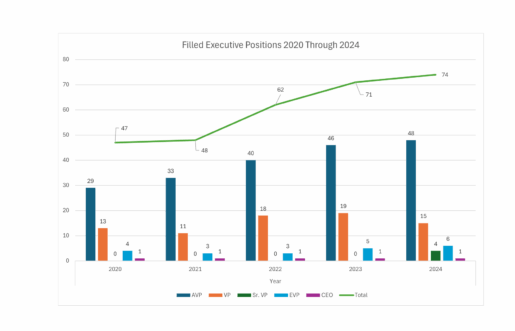
DART has increased or maintained its number of budgeted executive positions nearly every year since 2014, except in 2018, according to internal records obtained by The Dallas Express.


